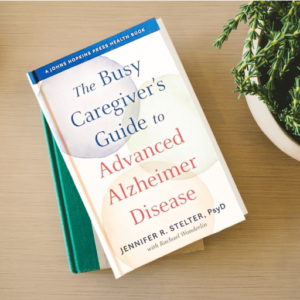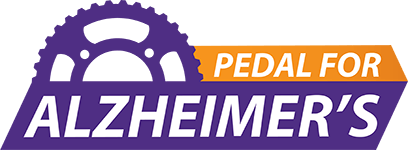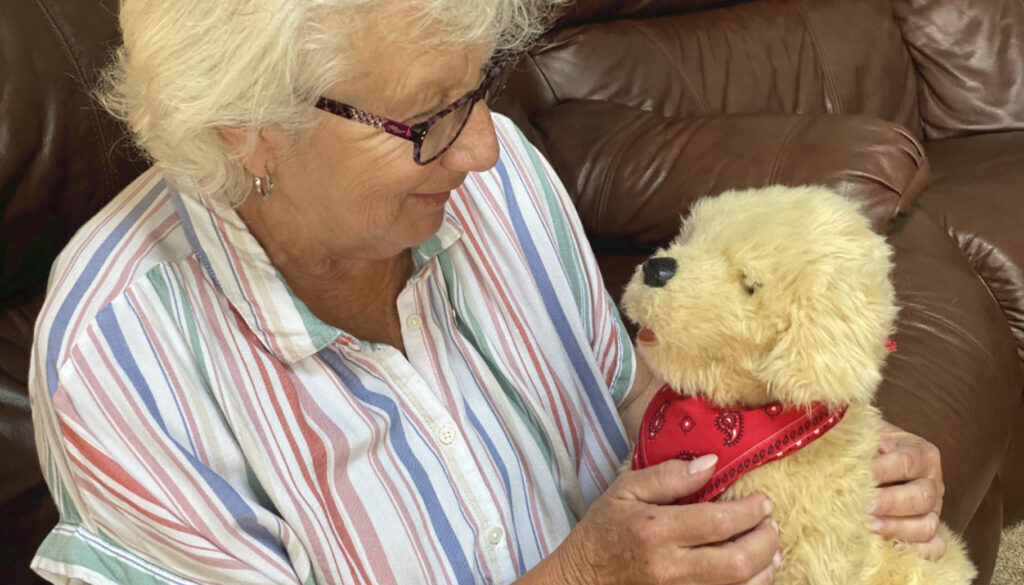Are You Ready for the Holidays?
Spending time together as family, especially around the holidays, is priceless. However, sometimes this can be a challenging season for individuals with Alzheimer’s disease or other forms of dementia and their loved ones, as they may not be able to communicate with each other as well as they used to, share their thoughts and engage with each other like before, or feel comfortable with one another because of this new type of relationship. Families can help themselves and their loved ones enjoy those times even more with a little preparation.
Below are five holistic, sensory-based ways to engage with family members who may have cognitive challenges using Habilitation strategies. Habilitation means utilizing a person’s abilities to connect to others by meeting them where they are at in the disease process, bringing about meaning and quality in their lives, and encouraging them to stay independent for as long as possible. The key to habilitation with people who have memory care needs is through their emotional connections with others. Everyone senses and feels emotions, including those who have dementia. When sensory-based engagement strategies are used, this can ignite positive feelings and memories, promoting productive behavioral expressions and connections (Stelter, 2021).
Each of the following five strategies can elicit emotional reactions and therefore establish meaningful connections.
Strategy #1
When visiting a loved one with cognitive needs, bring a dog, cat, or bird if they are friendly and can be transported. The unconditional love that pets offer brings about a wonderful connection to someone who may not always be able to fully communicate. It also provides tactile, visual and auditory stimulation and can improve mood and increase physical activity. Furry friends also assist as conversation starters. If a real pet is not available or may be overwhelming for your loved one, try a realistic, life-like animal. A recommendation is the Companion Pet.
Strategy #2
During visits, provide your loved one with an object he/she can hold to reduce confusion and fear. This can rewire the brain to form new connections, called neuroplasticity (Freitas, 2015), which helps ground the person in the moment and reduce confusion and fear. Additionally, it can help them be more attentive and concentrate better, improving communication and engagement. A great product that can be used is any small exercise object, like a stress ball, hand exerciser, tangled object, or weighted blanket with tactile teasers. Objects such as these provide tactile stimulation, assist with manual dexterity, provide physical activity and can improve mood.
Strategy #3
Holidays are a time for creating memories and spending time together. Pictures capture all the laughs, serious conversations, hugs, cheers, stories and more. Think about reminiscing about past holidays together and share photos from previous celebrations. This experience is a form of visual and auditory stimulation. Remember the good times and hold onto happy memories this holiday season.
Strategy #4
As the day goes on and your holiday visit becomes an afternoon or evening celebration, your loved one may become more agitated and prone to anger. Such behavior can hinder the desire to visit and make communication awkward. To address these symptoms, if a morning celebration is not possible, you may want to think about utilizing aromatherapy during celebrations. Aromatherapy is the safe and effective use of essential oils. There are a large number of clinical trials that point to the benefits of using essentials oil with those living with dementia (Laguipo, 2021). Lavender is a scent that can bring about a calming sensation. If your loved one is not fond of this scent, there are several others that can be tried. Aromatherapy can also be used to entice appetite, reduce anxiety, help with sleep, increase energy and much more.
Strategy #5
Music has found to have many benefits for those with dementia. If your loved one likes music, playing songs they know can help improve mood and increase awareness and clear thinking. It’s best to play upbeat music in the morning, music with no words during social engagement times, and bi-harmonic music (i.e., single tune music like a violin or harp) toward late afternoon and early evening to reduce potential signs of sundowning, common with those who have Alzheimer’s disease (Freitas, 2015). Get ready to play “Jingle Bells” and other notable favorites this holiday season!
To add visual stimulation to your loved one’s auditory experience, try Memory Lane TV. This multi-sensory media collection provides calming footage featuring various settings and experiences to keep your loved one feeling relaxed and engaged.
The holiday season should be as joyous as possible for everyone. Utilizing holistic, sensory-based techniques may enhance the quality of this holiday season for you and your loved one.
At the Dementia Connection Institute, we are always striving to educate caregivers and professionals to fill their toolbox with lots of tools to be prepared when caring for those living with dementia. When caregivers are educated and prepared, this allows those living with dementia to live freely in their new world, without judgment, controls, and negativity.
Learn more about the above mentioned engagement strategies and more at one of our upcoming seminars. Family caregivers and professionals can become certified as a Dementia Connection Specialist (DCS)! Now offering our seminars virtual and in-person. Learn more.




